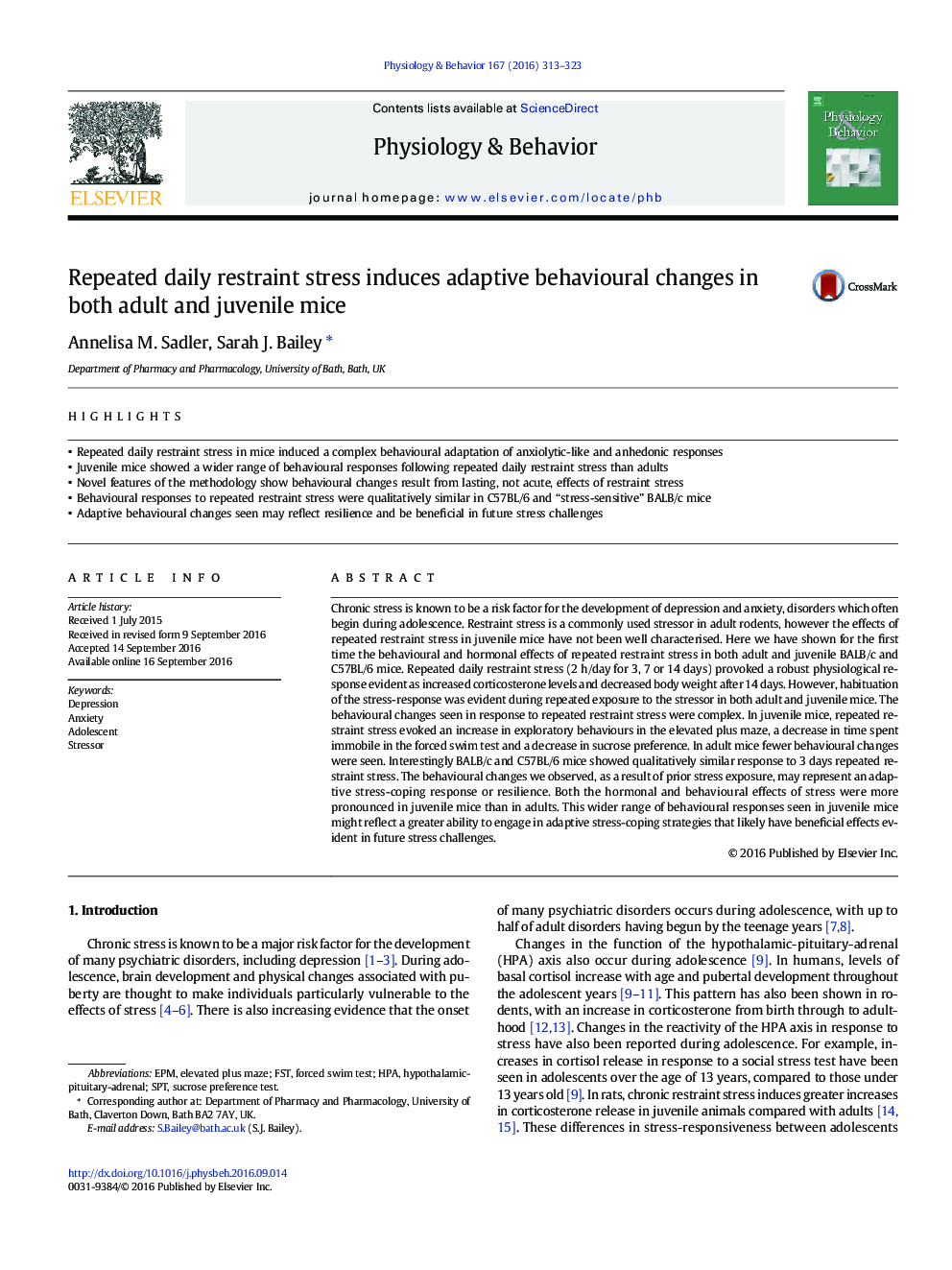| Article ID | Journal | Published Year | Pages | File Type |
|---|---|---|---|---|
| 5922535 | Physiology & Behavior | 2016 | 11 Pages |
â¢Repeated daily restraint stress in mice induced a complex behavioural adaptation of anxiolytic-like and anhedonic responsesâ¢Juvenile mice showed a wider range of behavioural responses following repeated daily restraint stress than adultsâ¢Novel features of the methodology show behavioural changes result from lasting, not acute, effects of restraint stressâ¢Behavioural responses to repeated restraint stress were qualitatively similar in C57BL/6 and “stress-sensitive” BALB/c miceâ¢Adaptive behavioural changes seen may reflect resilience and be beneficial in future stress challenges
Chronic stress is known to be a risk factor for the development of depression and anxiety, disorders which often begin during adolescence. Restraint stress is a commonly used stressor in adult rodents, however the effects of repeated restraint stress in juvenile mice have not been well characterised. Here we have shown for the first time the behavioural and hormonal effects of repeated restraint stress in both adult and juvenile BALB/c and C57BL/6 mice. Repeated daily restraint stress (2Â h/day for 3, 7 or 14Â days) provoked a robust physiological response evident as increased corticosterone levels and decreased body weight after 14Â days. However, habituation of the stress-response was evident during repeated exposure to the stressor in both adult and juvenile mice. The behavioural changes seen in response to repeated restraint stress were complex. In juvenile mice, repeated restraint stress evoked an increase in exploratory behaviours in the elevated plus maze, a decrease in time spent immobile in the forced swim test and a decrease in sucrose preference. In adult mice fewer behavioural changes were seen. Interestingly BALB/c and C57BL/6 mice showed qualitatively similar response to 3Â days repeated restraint stress. The behavioural changes we observed, as a result of prior stress exposure, may represent an adaptive stress-coping response or resilience. Both the hormonal and behavioural effects of stress were more pronounced in juvenile mice than in adults. This wider range of behavioural responses seen in juvenile mice might reflect a greater ability to engage in adaptive stress-coping strategies that likely have beneficial effects evident in future stress challenges.
